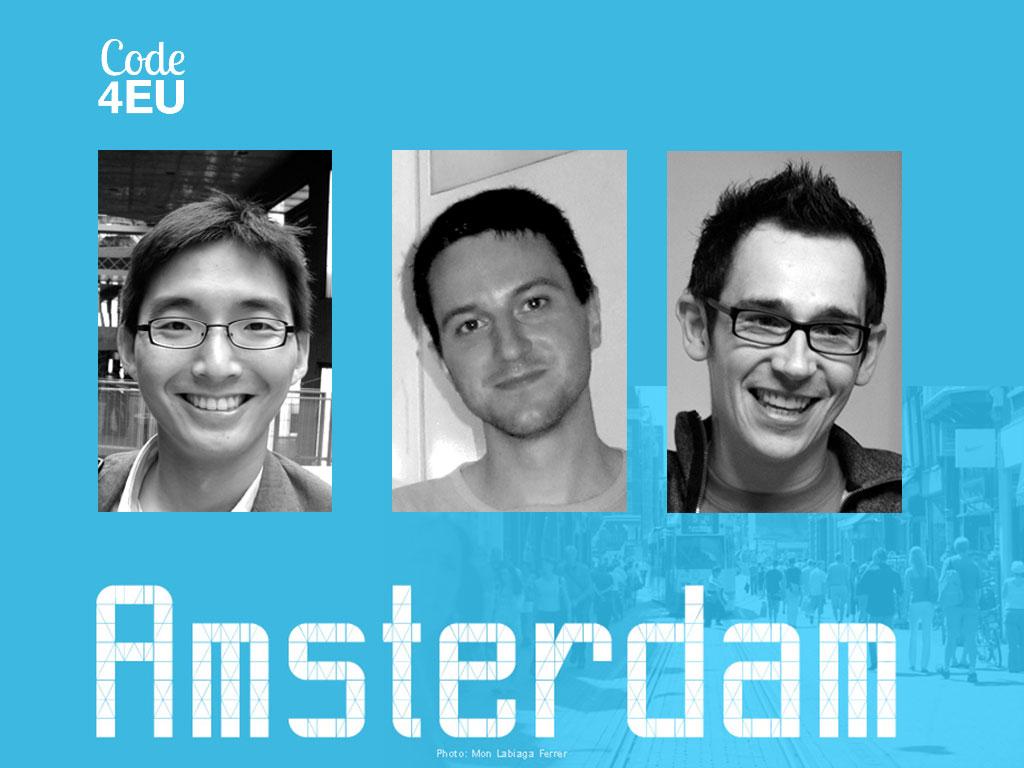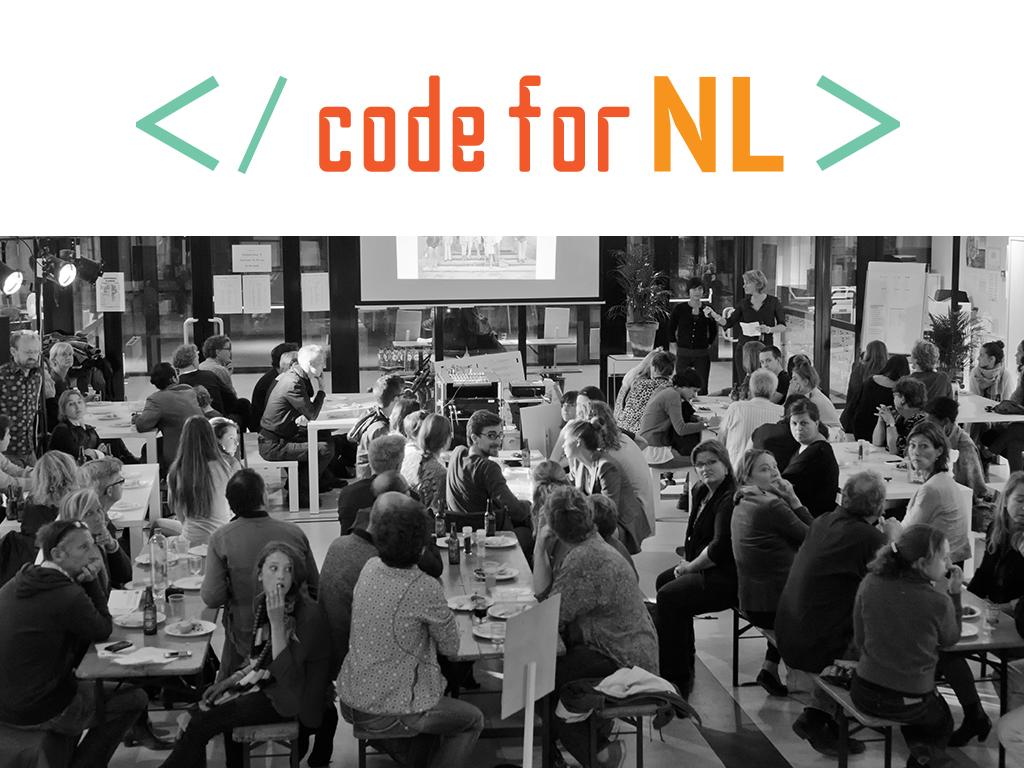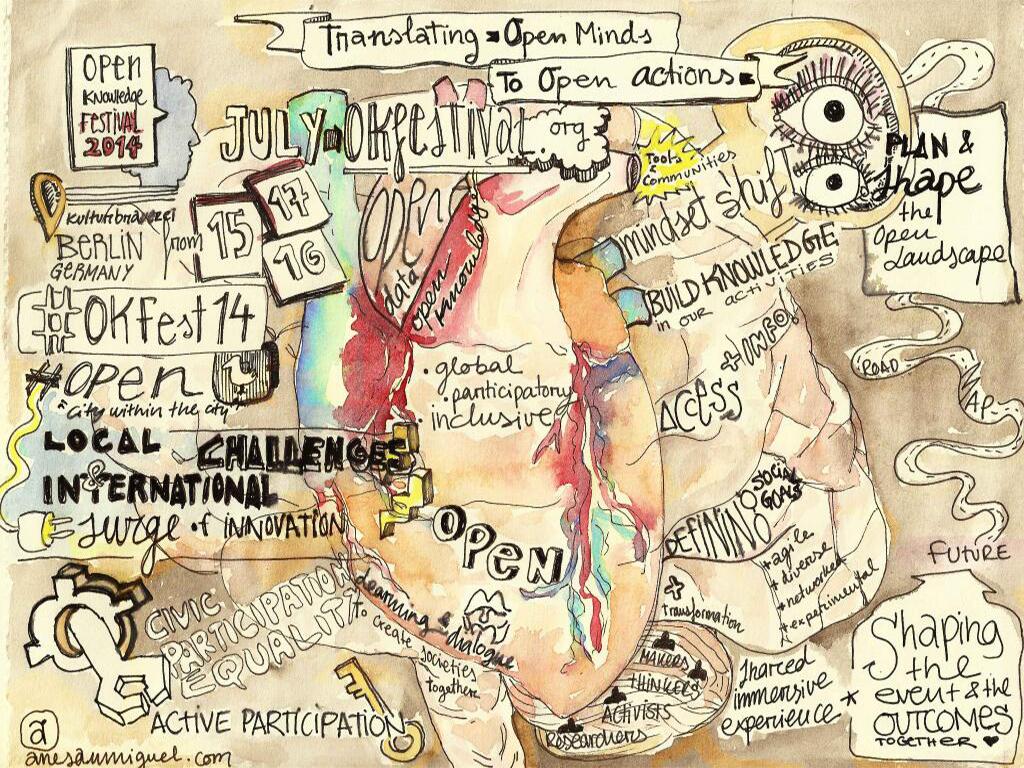No lack of ambition, that’s for sure. The project Code for Europe (CfE) strives to change the way in which government handles IT projects. Or better yet, Code for Europe wants to solve city/civic challenges by building straightforward IT solutions, such as apps. Now there is a bold mission statement.
But what does it mean on a practical level? Lets take an example. We want to tackle issues in neighbourhoods in Amsterdam. Ok. Whilst the municipality is trying to fix the underlying social issues at hand, we want to focus on the people that are actually living there. For instance by helping them practise their hobbies and by connecting people with the same interests, for instance through an app that will easily help locate a suited accommodation to get together. Tada. Quick win.
Is it that simple? Yes. People that are active in their community and that have fun will enjoy their neighbourhood much more. And they will also feel more responsible to keep the neighbourhood enjoyable. It’s easier to reach out to your neighbour when you have actually met and spent time with him.
Is this to easy? Maybe a little. But the very idea behind Code for Europe is that the government starts to realise that they don’t have to micromanage people (and they can’t), but that they should find smart ways to engage citizens to take ownership of issues in their neighbourhood themselves. And that they should focus on buttom-up solutions.
So here is the Code for Europe approach in a snapshot:
- Apps/web over paperwork
- User driven design over professional outlooks
- Iterative implementation over a 5-year plan
- Open source over closed circuits
- Engaged citizens over micromanagement from the government
- Sharing code over novelty
Yes. You techies guessed right, inspired by the Agile Manifesto. We CODE for Europe after all. So agile development is second nature!
That covers the what, now for the who. In six European cities developers and designers are hired for a 9-month fellowship with several departments of local government. In Amsterdam Giovanni, Piotr and Ohyoon are coding away on three specific challenges. They have been working really hard on investigating the issues and conceptualising solutions for the last 4 months. They are now in their 5th month, and they are testing prototypes. You can visit the 3-weekly demos to follow their work progress.
Now that we are rolling into a new phase of development (and closing one iteration if you like, since we’re applying agile here ;-)), maybe this is a good time for a retrospective a la Scrum. What went well?
- Lobbying: The local government in Amsterdam is ready for this approach. Civil servants are looking for innovation and have become curious towards that thing called open data.
- Runners/enablers: The fellows have been provided with high-level enablers to open up doors within city hall and runners to support them in their day-to-day work.
- Having local incubators/accelerators: Waag and Economics Affairs are working together on hosting the fellowship and this two way approach (policy & practice) seems to be an ideal mix.
- 3-weekly demos: Keeping speed in the development, for instance with public events, creates opportunities for discussion with a broad audience.
What could be improved?
- Communications: We underestimate the language barrier. It’s not so much a problem within city hall, but it is when you talk to locals, to real citizens that are potentially going to use the apps/webs.
- Acclimatisation period: Put three guys with various backgrounds and languages in a foreign country that have never worked together before and still need to arrange housing and give them tons of questions to answer and…. “GO”! What? It doesn’t go smoothly right away? Really? Next time around it would be good to reserve some time for the fellows to get acquainted and settled.
- KISS (keep it simple stupid): The challenges and the underlying structures with all stakeholders are too ambitious. We need to create more focus.
All in all, a few valuable lessons learnt, but we’re also nicely on our way. Not too bad. What will we focus on in the next phase? Getting working prototypes out for testing!


